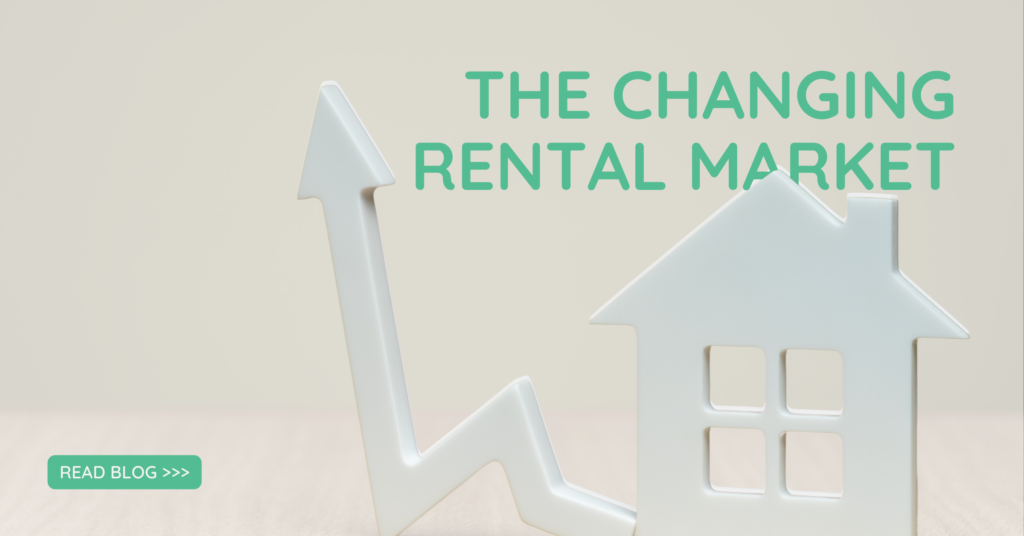The Changing Rental Market: What Property Owners Can Expect For The Next Decade
Reading Time: 5 minutesThe rental market has undergone significant shifts in recent years. While the pandemic brought temporary fluctuations, the long-term trend points towards a dynamic and evolving landscape for property owners in the next decade. This article explores the key trends shaping the future of rental housing and how property owners can prepare for success in this…

The rental market has undergone significant shifts in recent years. While the pandemic brought temporary fluctuations, the long-term trend points towards a dynamic and evolving landscape for property owners in the next decade.
This article explores the key trends shaping the future of rental housing and how property owners can prepare for success in this changing environment.
Table of Contents
Key Trends Shaping the Future

The rental market is on the precipice of a significant transformation driven by several key trends. By understanding these key trends, property owners can make informed decisions about their investments and adapt their strategies to cater to the evolving needs of the rental market.
Demographic Shifts
Saddled with student loan debt and a preference for flexibility and urban living, millennials are delaying homeownership at record rates. This trend is expected to continue, boosting the renter population across the nation. Landlords in job markets attractive to young professionals can expect high occupancy rates, particularly for studios or multi-unit buildings that cater to this demographic’s desire for convenience and social connection.
The aging population is another significant demographic shift impacting the rental market. Baby boomers are increasingly seeking accessible, amenity-rich rental options that cater to their changing needs. This could lead to a rise in demand for single-story homes or apartments with features like grab bars and wider doorways in suburban or walkable areas.
Technological Advancements
Artificial intelligence (AI) is revolutionizing property management. AI-powered tools can automate tasks like rent collection, tenant screening, and even basic maintenance requests. This translates to significant efficiency gains for property owners, freeing up their time to focus on strategic planning and tenant relations. Additionally, AI-powered tenant screening can streamline the leasing process and potentially reduce the risk of bad tenants.
Technology is not just benefiting landlords. Property technology (PropTech) is transforming the tenant experience. Virtual tours allow for wider accessibility to properties, while online portals streamline rent payments and maintenance requests. Smart home features like smart locks, thermostats, and appliances offer tenants greater control over their environment and potentially lower utility bills. Landlords who embrace PropTech can attract tech-savvy tenants who value convenience and a modern living experience.
The Evolving Regulatory Landscape
The legal landscape surrounding rental housing is constantly evolving. Tenant protection laws are becoming more nuanced, with regulations concerning issues like security deposits, rent control (in certain areas), and eviction procedures becoming more specific. Property owners must stay informed about these changes to ensure compliance and avoid legal pitfalls. Landlord associations and consultations with legal professionals can be valuable resources for navigating the changing regulatory environment.
Potential Impacts on Property Owners

The changing rental market presents both challenges and opportunities for property owners. Here’s a breakdown of some key areas to consider:
Rent Growth
Rent growth may vary depending on location. Major cities with already high rental costs might see a slowdown due to factors like increased supply or economic fluctuations. Conversely, suburbs and secondary markets experiencing population inflows could see continued rent growth due to rising demand.
Property owners can adapt their strategies based on the market. In high-cost, slower-growth cities, maintaining a high occupancy rate becomes crucial. Offering competitive rents, short-term lease options, or targeted marketing towards specific demographics can help achieve this. In growing suburban or secondary markets, focusing on long-term leases and potentially raising rents in line with market trends might be a viable strategy.
Evolving Tenant Preferences
Today’s tenants have increasingly specific expectations. Amenities like in-unit laundry, high-speed internet, and pet-friendliness are becoming baseline requirements. Additionally, a growing segment of renters values smart home features that offer convenience and potentially lower energy bills.
Property owners can consider adding these amenities during renovations or when acquiring new properties. For existing properties, prioritizing cost-effective upgrades like smart thermostats or keyless entry systems can enhance the tenant experience. Investors who factor in the cost of these upgrades when calculating potential returns can ensure their properties remain competitive.
Management Considerations
Managing rentals effectively will be increasingly important. With potentially more complex legalities and evolving tenant needs, property owners may find professional management services invaluable.
- Technology’s Role: Property managers equipped with the latest technology can streamline operations. Tenant screening software, online rent payments, and automated maintenance request systems can free up valuable time. Property managers can then focus on fostering positive relationships with tenants, addressing complex issues, and ensuring compliance with regulations.
Preparing for the Future
The future of the rental market holds both challenges and opportunities. Here’s how property owners can navigate the changing landscape and position themselves for success:
Investment Strategies for a Dynamic Market
- Location, Property Type, and Long-Term Value: These factors remain crucial for successful investment. Researching demographics, job markets, and long-term development plans in an area can help identify locations with high rental demand and potential for appreciation. Choosing the right property type also matters. Studios or multi-unit buildings might be ideal for high-demand urban areas, while single-family homes cater to suburban or family-oriented demographics. Always prioritize properties with good bones and potential for long-term value.
- The Rise of “Accidental Landlords” and Market Impact: The economic climate might lead to an increase in “accidental landlords” – homeowners who unintentionally become landlords due to factors like job relocation or difficulty selling a property. This could introduce new competition to the market, potentially putting downward pressure on rents in some areas. However, it also presents an opportunity for experienced landlords. By offering exceptional service, well-maintained properties, and competitive rates, experienced landlords can distinguish themselves and attract high-quality tenants.
Building a Strong Rental Portfolio in a Competitive Market
- Maintaining Properties and Offering Competitive Amenities: Regular maintenance is essential to attract and retain tenants. Addressing issues promptly and keeping properties in good condition demonstrates professionalism and respect for tenants. Additionally, offering competitive amenities like in-unit laundry, high-speed internet, and pet-friendliness can significantly enhance the tenant experience and make your properties stand out in a crowded market.
- Prioritizing Tenant Communication and Retention: Building strong relationships with tenants is paramount. Clear communication, prompt responses to inquiries and maintenance requests, and fostering a sense of community can go a long way. Investing in tenant retention can be far more cost-effective than constantly searching for new renters. Happy tenants are more likely to renew their leases and pay rent on time, contributing to a stable income stream.
Conclusion
The rental market is on the cusp of significant change. Demographic shifts, technological advancements, and evolving regulations will all play a role in shaping the landscape over the next decade. By staying informed, adapting to new trends, and prioritizing tenant needs, property owners can position themselves to thrive in this dynamic environment. The key lies in embracing adaptability and remaining proactive in a market that is constantly evolving.
Are you a property owner looking to navigate the changing rental market and maximize your returns? Green Ocean Property Management can help. With over 40 years of experience and a proven track record of success, we offer a comprehensive suite of property management services designed to meet the needs of both property owners and tenants. From tenant screening and rent collection to maintenance coordination and legal compliance, we take care of everything so you can focus on what matters most.
Contact Green Ocean Property Management today to learn more about how we can help you achieve your investment goals.
Moving a Fridge Through a Window with Creative Solutions
Reading Time: 2 minutesWhen it comes to property management problems, creativity, and a can-do attitude make all the difference. At Green Ocean Property Management, we take pride in going above and beyond to solve unique challenges our clients encounter. In this blog post, we’re excited to share a recent experience moving a fridge through a window. It showcases…
Proper Electrical Panel Setup for Multi-Family Houses
Reading Time: 2 minutesNavigating the intricacies of managing a multi-family property involves more than just maintaining the physical aspects; it’s about ensuring compliance with regulations while delivering quality living conditions. Today, we’re in the basement of one of our buildings, right in front of the electrical panels. Why, you ask? Because understanding the correct setup for these panels…
Reducing Carbon Footprint: A Renter’s Guide to Eco-Friendly Living
Reading Time: 3 minutesIn today’s world, where environmental concerns are at the forefront of global discussions, adopting eco-friendly practices has become imperative. As a renter, you might wonder how you can contribute to sustainability while navigating the constraints of temporary living arrangements. This roadmap aims to guide renters towards eco-friendly living, offering practical tips and strategies to reduce…








